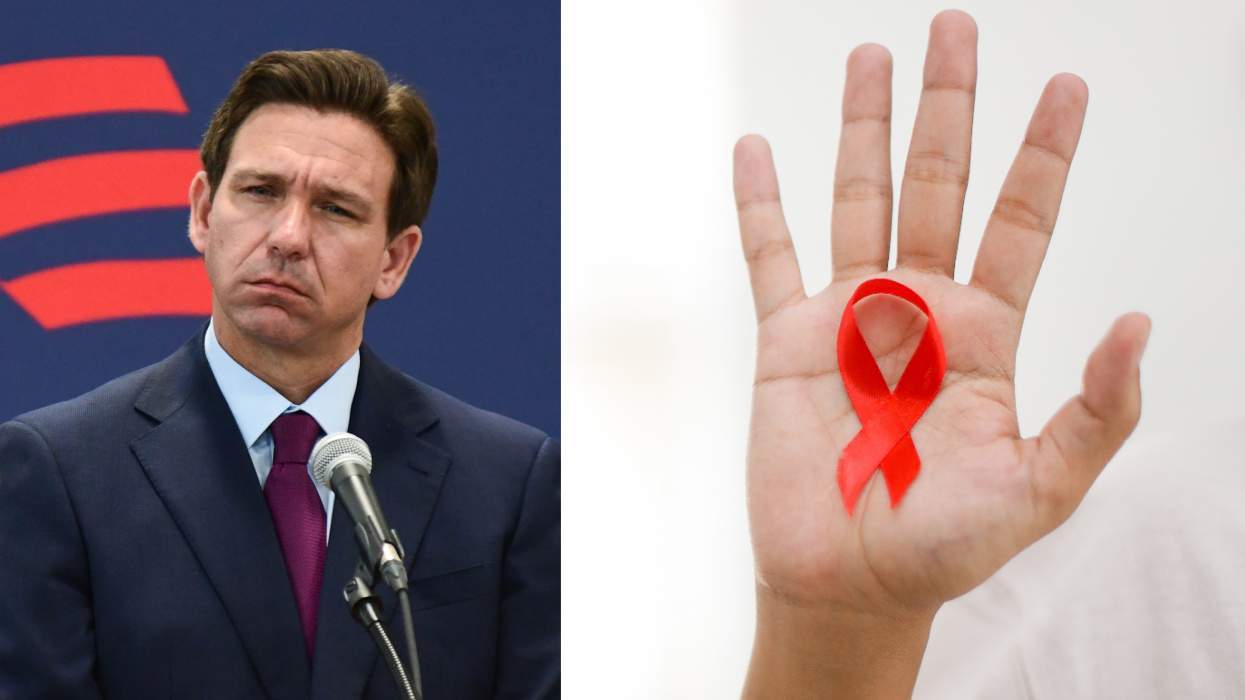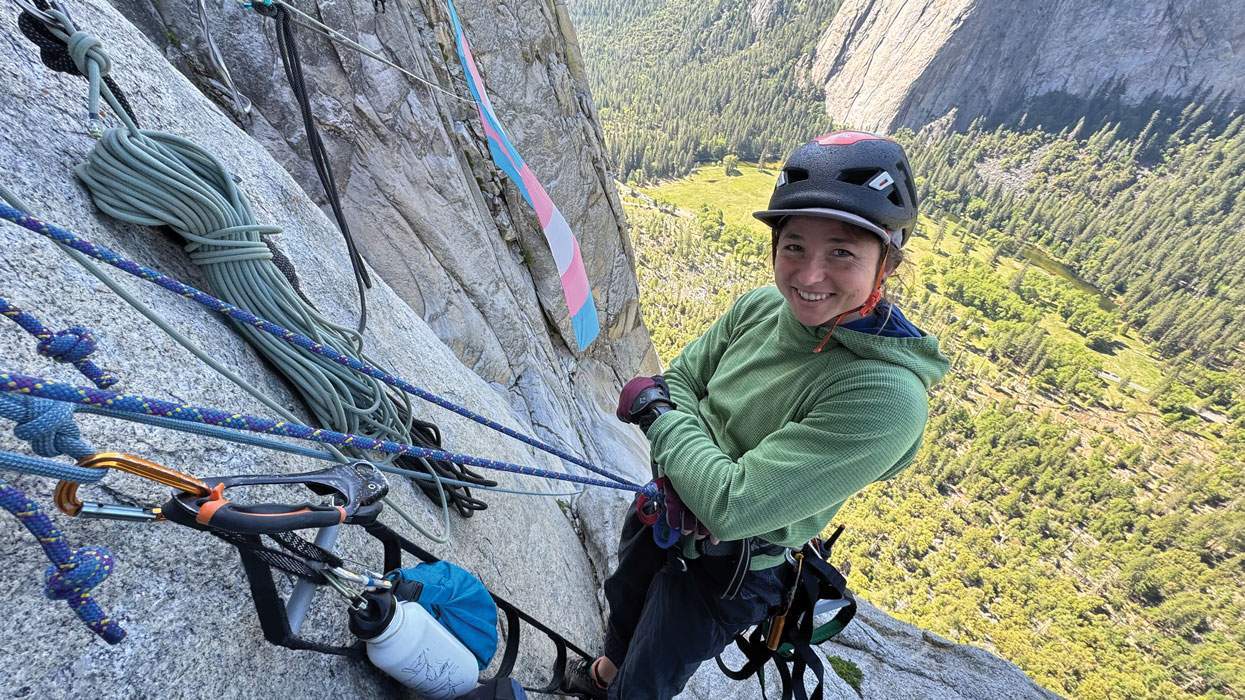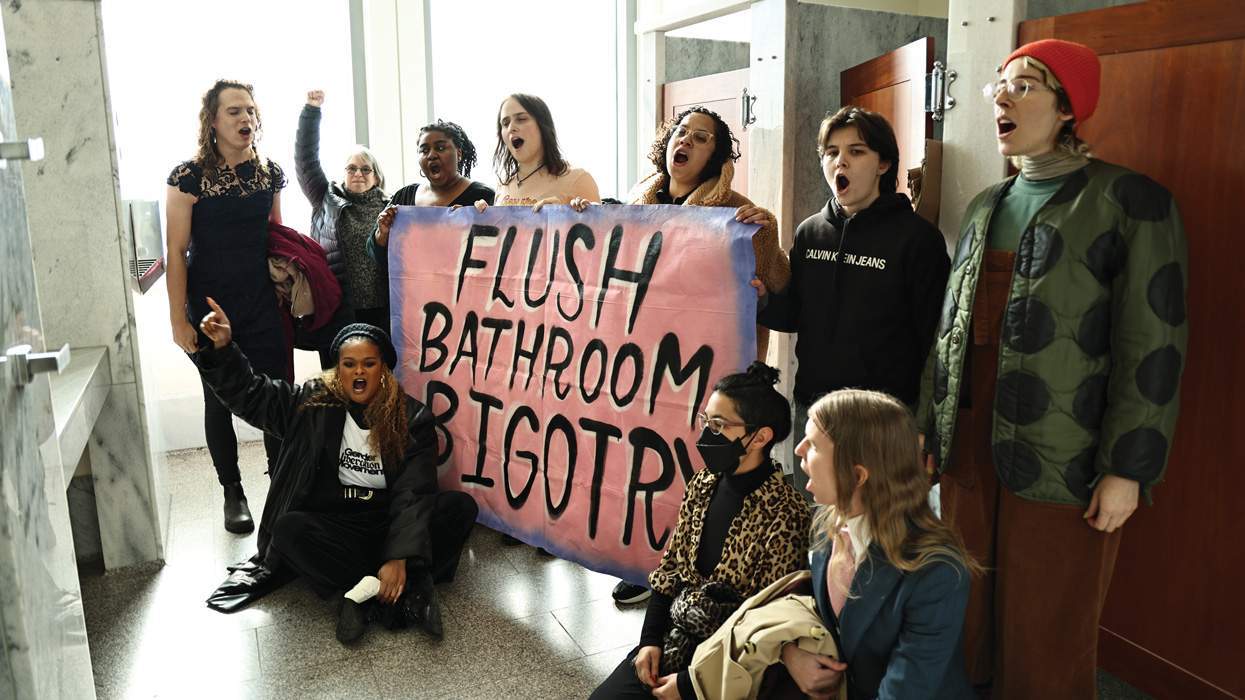Christie Leonard's at Gospel Crusade seemed secure. But when her unfulfilling marriage to a man she didn't desire fell apart amid rumors she had grown too close to another woman in her church, the Florida woman found herself unemployed.
"When I separated from my husband and was going to move in with a woman, who was my best friend, that's when they fired me," Leonard says. She wasn't engaged in a queer relationship; her friend, who also left a crumbling marriage around the same time, was straight. But as chatter about their sexuality swirled, it severed her relationship with Gospel Crusade, both as an employee and as a member of its affiliated congregation, Family Church.
Now a legal challenge to her termination tests the limits of employment protections for workers in religious organizations. Do ministerial exemptions regarding discrimination apply to anyone working in a church or religious organization?
While Leonard doesn't label herself a member of the LGBTQ+ community -- "At this point, I identify myself as nonsexual, and I consider myself an ally" -- her case could deliver a watershed moment for queer rights.
Prior decisions make clear that if job protections apply to LGBTQ+ people -- as the U.S. Supreme Court determined in Bostock v. Clayton County in 2020 -- an employer can't fire someone based on suspicions that they are queer.
"When you have cases of civil rights discrimination, the focus is on 'Why is this employer treating this person this way?'" says Sunu Chandy, legal director for the National Women's Law Center.
Post-Bostock, however, the high court ruled in favor of religious exemptions from certain exemptions antidiscrimination laws in two cases; those cases did not involve LGBTQ+ people, but the ruling has implications for them. In the cases, which involved teachers at religious schools, the court ruled that the "ministerial exception" from antidiscrimination law applied to them. But Leonard was providing audiovisual and accounting services to Gospel Crusade, not teaching religion. Gospel Crusade, for the record, denies firing Leonard over her personal life.
"In 2018, [Leonard] requested and was granted a 10-day vacation. Instead of returning to work at the conclusion, [Leonard] abandoned her job for more than 80 days," reads a statement sent to Sarasota Magazine. "The church gave her a second chance, but based on her lack of work ethic and productivity, terminated her less than two months later."
That account differs from Leonard's. She says church leaders long wanted her involved in a relationship with someone of the opposite sex. "That was their standard on how to glorify God." In mandated counseling that she compares to "reparative therapy" for LGBTQ+ people, she was encouraged to marry a man.
Leonard eventually met and married a man, but a lack of desire plagued the union. Church members went so far as to counsel her on bedroom problems and lubrication. But she also connected through the church to a female friend, and they comforted each other as their marriages collapsed.
That long leave referenced in the Gospel Crusade statement? When the friend went on a mission to Africa, she asked Leonard to document it on video. Before the trip, Leonard's then-husband went to Pastor Phil Derstine with concerns the women were growing close. Derstine allowed the women to travel together on the condition they not socialize for 30 days before the trip, Leonard says.
When the women arrived back in the States, they chose not to return to their marital homes. The friend lost her job at Gospel Crusade immediately. Leonard stayed for a period, forbidden to associate with her friend and encouraged to work on her marriage. When Leonard revealed she had moved in with her best friend anyway, she was terminated.
"They decided I was out of time to get any better," she says.
Leonard filed a complaint with the Equal Employment Opportunity Commission in 2019, and that same year it found "reasonable cause" that she had suffered illegal discrimination. She then filed her suit in federal court.
Leonard's attorney Kevin Sanderson says the church's defense changed as the case moved from an employment complaint and into federal court. At one point, the church argued a ministerial exemption to Bostock applied even though Leonard provided video and accounting services, not ministry. Sanderson argues that Gospel Crusade discriminated illegally on multiple fronts, including on Leonard's marital status.
A ruling could come down later this year.















Charlie Kirk DID say stoning gay people was the 'perfect law' — and these other heinous quotes
These are some of his worst comments about LGBTQ+ people made by Charlie Kirk.